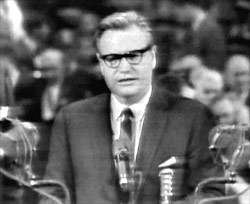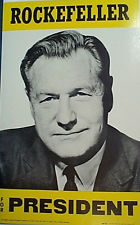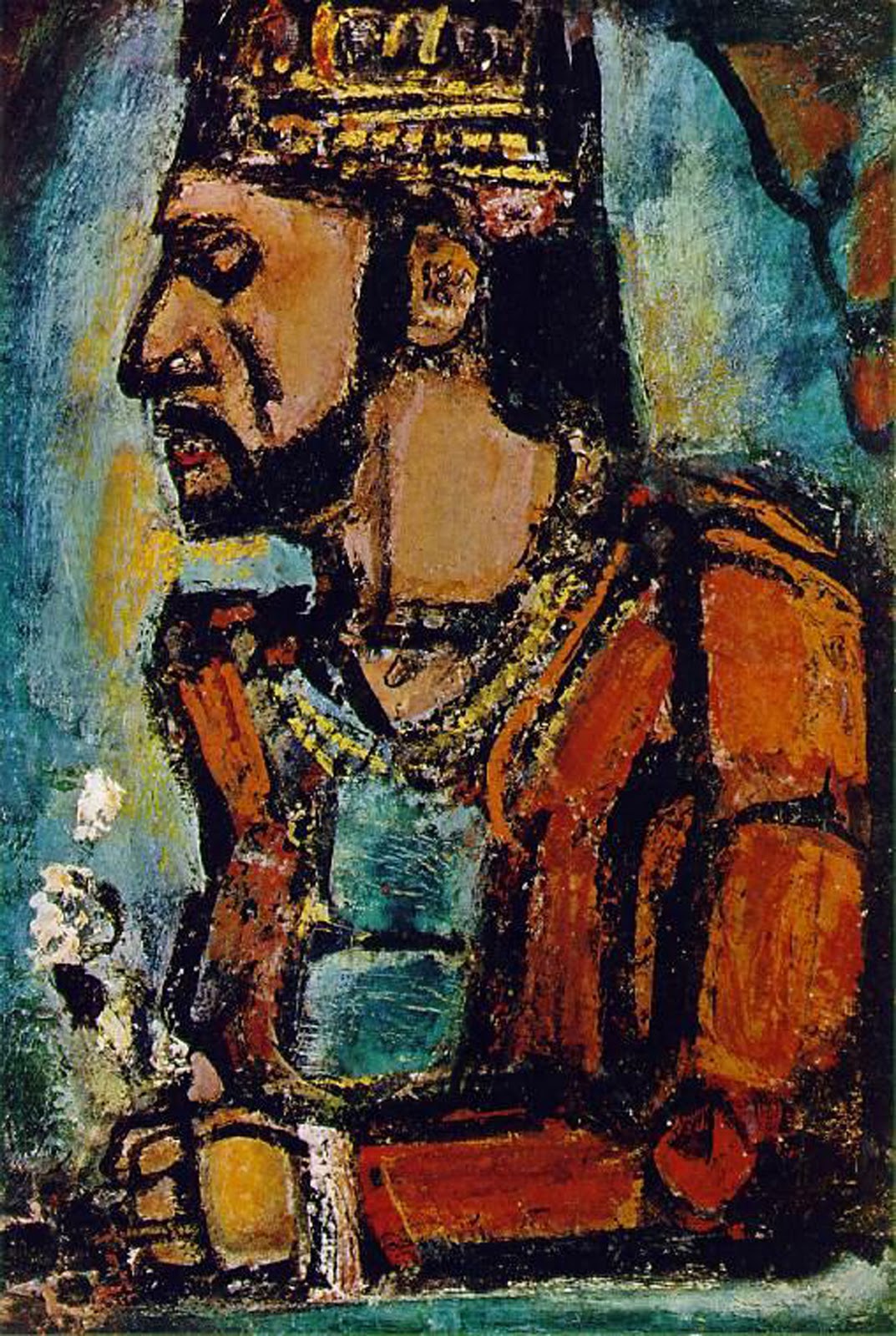My study of United States presidents extends to candidates and vice-presidents. Recently I was reminded of Nelson Rockefeller’s finest hour when he stared down the Republican extremists at the 1964 nominating convention.

Part of it is on You Tube. That whetted my appetite and so I looked for a biography. According to the subtitle that is what this book is. On that more later.
The Rockefeller in these pages is full of energy, enthusiasm, and good will though not always well disciplined. Among his many attractive features is a complete lack of self-consciousness about his own singularity as an incredibly wealthy titan who chose, repeatedly, the hard and often unrewarding work of public life: many years on commissions and committees and seventeen years in elected office. He never expected anyone to thank him for his efforts, and just as well because no one did.
Equally impressive is Rockefeller’s interest in evidence and argument about public affairs, domestic and foreign, which translated into talent scouting consultants, researchers, speech writers, and retainers of many stripes, notably Dr. H. Kissinger. Rockefeller generated a blizzard of position papers, reports (often to himself), assessments, public hearings at his own expense and more. He was, on this account, a whirlwind to work for and often thoughtless in driving his staff to produce more and better.
Many billionaires keep it to themselves, including some far wealthier than Rockefeller, but Nelson followed his father in philanthropy and his commitment to art and architecture are another side to the man. He sought out, bought, and on this account seemed to enjoy contemporary art; it was more than an investment for him. There is a charming account of Nelson walking past an ‘objet d’art’ in an office building, stopping in his tracks to study it, causing a pile-up of the following entourage, and quivering with excitement Rockefeller sent an aide to find the artist. In due course, Rockefeller, driving a hard bargain, bought the work and kept it in his private office for years. A reader is left In no doubt that Rockefeller loved the expression, the creativity, the provocation he found in painting and sculpture.
In architecture he thought big, witness that colossus at Albany that now bears his name.
He was critical in bringing the United Nations to New York and donating the land on which the building now stands.
Less appealing is his Hamlet procrastination about seeking the presidential nomination. He could never quite go for it. Perhaps his easy life made it but an option for him, one among many others, rather than a desperate lifelong quest as it was for his nemesis Richard Nixon. Rockefeller had no fear of losing because win-or-lose, he was always Rockefeller, but Nixon had nothing else so he committed himself completely to the task. All of this is my speculation for the book sheds little light on the inner man, despite the title “Biography” there is little about his life. It is more a memoir of the author’s experience of working for Rockefeller.
Rockefeller is quoted saying in later life that he was too busy being governor to devote three of four years to mounting a presidential campaign. In his case that meant setting up a national organization and going anywhere and everywhere to support Republican candidates. But his heart would not have been in it, and he would have been unable to conceal it. He wanted to do things himself not lead cheers for others, though that is what Nixon, Barry Goldwater, and Ronald Reagan did and they got nominated.
Rockefeller was a completely unrepentant Cold Warrior and a 100% Hawk on Vietnam, and never changed.
He seems, on this account, to have been blind to colour and to the racism of the United States. He mouthed platitudes now and again but it was scripted not felt, say in contrast to Bill Clinton who was absolutely right on race. Likewise he was deaf to the early stages of women’s liberation. Not a leader on either of those scores.
The author even ten years later seems star-struck by the The Grand Nelson, and why not? He was certainly one of a kind. Other rich men, I cannot think of a female example, have dabbled in politics, but he was a stayer in New York State politics for sure, four gubernatorial elections and fourteen years in the Governor’s chair, and much accomplished in shaping New York, if leaving many bills to be paid later. (He financed many of his state projects by selling bonds that one day had to be paid, long after his tenure – sovereign debt.)
There is a story that in 1968 Hubert Humphrey approached Rockefeller about going on his ticket as Vice-President. He declined, saying “I’m a Republican, and always will be.” But what did that mean to him? A tribal loyalty, a second skin that could not be shed, even after that confrontation in 1964 with the mob Barry Goldwater let loose, not even after being comprehensively out maneuvered by Nixon in the 1968 convention. While many Republicans doubted Rockefeller was a Republican, Rockefeller never doubted it. He was what used to be called a Ripon Republican, a breed now destroyed by the Tea Party tail of the Republican Parody. (Intentional.)
In fact, Rockefeller’s presidential efforts were few. One primary in Oregon, many position papers and press conferences on national and international issues, but few campaigns to win votes, or systematic efforts to win the support of Republican Party delegates. In 1968 he declared himself a candidate one week and then withdrew the next.

It is a mystery, for the author says Rockefeller dominated any room he entered with the force of his personality. Yet though he often dreamed of being president, Rockefeller said later, he never made the sustained and disciplined effort it needed, though he was quite capable of sustained and disciplined efforts as his other public service shows. Indeed he was quite tenacious over the years in pressing his agenda.
Then in the dark and confusing days after Nixon’s unprecedented resignation, Rockefeller accepted Gerald Ford’s offer of the Vice-Presidency. There are a lot of questions there. Why did Ford turn to Rockefeller? Why did Rockefeller accept? On that it seems that Rockefeller thought he could make something of the office in the extraordinary circumstances after Watergate. After all Henry Kissinger was his creature, superintending foreign policy. He, Nelson Rockefeller, would throw himself into domestic policy! That ambition sufficed to motivate him to endure a long, embarrassing, and unfriendly confirmation in Congress, but it perished after a couple of meetings with President Ford.
For the first time in his life, Rockefeller had nothing of moment to do. Dutifully he made the best of the hand he held, going to state funerals, opening parks, handing out ribbons and medals, and the like.
When Ford prepared to run for (re-)election, the Republican Party, then dominated by its Southern tail, ruled Rockefeller unacceptable. To his credit Rockefeller accepted that fate, too, and in fact nominated Bob Dole for the job, going quietly into retirement. (Bob Dole has since been demonised by the Tea Party ultras.)
He had worked for every president from Franklin Roosevelt to Gerald Ford in one capacity of another with the exception of John Kennedy, both Democrat and Republican. (In fact, he later did a short stint for Jimmie Carter.)
The end of his term as Vice-President marked the end of his life in public service. He spent his last years with his art collection, finding ways to make it accessible to the public through exhibits, reproductions, and publications with introductions which he sometimes wrote himself and his gravelly voice seems to rise from the page to offer his visceral response to many works.
The book ends with Nelson’s empty desk in Room 5600 in New York City where he did most of his work with the painting he hung on the wall in front of the chair, Georges Rouault’s ‘The Old King,’ a work I have admired in reproductions over the years. It was a gratifying confirmation to know that Nelson liked it, too.

The old king is remote, glacial, determined, defiant even, and unattractive, but clearly a force. Perhaps it is the measure of what Rockefeller wanted to be.
Pedant’s note. Ford was not elected president and Rockefeller was not elected Vice-President but I kept it simple above, because these are elected offices. Weak, I know.
Skip to content
